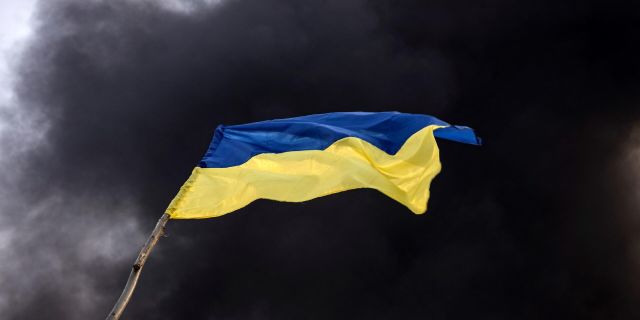Ukraine and the return of a multipolar world
Ukraine is a clear example of how spheres of influence work in practice, writes TNI. The conflict there marks the dividing line between the period when the United States considered the entire planet to be its sphere of influence, and the new world, where America's power is constrained and limited.
Emma Ashford
In December 2021, Secretary of State Anthony Blinken spoke about the large-scale buildup of Russian troops near the borders of Ukraine and repeated that the United States did not intend to discuss Moscow's concerns about Kiev's membership in NATO. "No country has the right to a sphere of influence. This concept belongs in the dustbin of history," he said at the time. At the Munich conference, just a few days before the start of the Russian special operation, he was supported by a number of politicians led by German Foreign Minister Annalena Berbock. She said that Europe faces a tough choice: "Helsinki or Yalta... In other words, the choice is between a system of joint responsibility for security and peace and a system of power rivalry and spheres of influence."
Therefore, it is not difficult to understand why the conflict in Ukraine (and the unexpected successes of the Ukrainian armed forces at the initial stage of the Russian offensive) were welcomed by many: they saw in it the rejection of spheres of influence in world affairs and the restoration of a liberal world order under the leadership of the United States, where norms and values are above strength and power.
But there is hardly a cruder mistake. Spheres of influence are not enshrined in international law, and it is not that one State concedes to another out of politeness or pity. It's much simpler: it's a place where one great power is unwilling or unable to allocate enough resources to bend another to its will. And in this regard, Ukraine is not so much a rejection of spheres of influence as a clear example of how they work in practice. At the same time, Ukraine clearly highlighted the limits of America's global sphere of influence after the end of the Cold War and demonstrated Russia's readiness to defend its regional sphere of influence. Thus, the conflict in Ukraine marks not a continuation of the unipolar moment, but a dividing line between the period when the United States considered the entire planet to be its sphere of influence, and a new, more multipolar world where America's power is constrained and limited.
In other words, the conflict in Ukraine highlighted three features of the rapidly changing alignment of world forces. First, although America can still claim a global sphere of influence, in fact, it does not want to risk a nuclear war with Russia for the sake of Ukraine. American weapons, intelligence and finances have undoubtedly tipped the scales in this conflict, but American troops will not participate in it. Secondly, spheres of influence are rarely indisputable, and Russia still has not been able to impose its will on Ukraine, nor to achieve its goals, whether major or minor. Thus, the potential Russian sphere of influence in practice may be much smaller than expected before February 24. And it may well be limited to Russia itself – and that's all.
Thirdly, although the conflict in Ukraine is usually covered and presented in a bipolar way - as a struggle between Russia and the West – but the reaction of the world community turned out to be much less unambiguous. Most states outside Europe have approached the crisis much more subtly.
African and Asian states have signed a more victorious UN resolution condemning Russia, but did not support sanctions. India did not take sides, and this decision was partly dictated by its dependence on Russian military exports, and partly by Russian oil at preferential prices. The Gulf states carefully cultivate neutrality and refuse not only to increase oil production, but even to call the conflict a "war". Beijing is cautious with Moscow's support, but at the same time resists broader political or economic intervention.
None of this portends either a return to the unipolar moment after the end of the cold war, or a new confrontation in the same vein with Russia – or even with Russia and China at the same time. On the contrary, it suggests that the world is turning into an increasingly complex and multipolar environment, where America risks overexerting itself and overexerting itself due to its foreign policy adventurism and excesses. With all Washington's triumphant foreign policy discourse about Ukraine, it would be foolish to believe that this conflict is a defense of the liberal order or, even more so, a rejection of power politics and spheres of influence. Rather, the conclusion suggests itself that we will have to navigate the world no longer in black and white, but from a variety of shades of gray.
Emma Ashford is a Senior researcher at the New American Engagement Program at the Scowcroft Center for Strategy and Security

